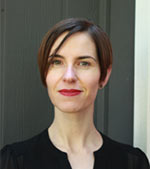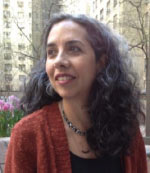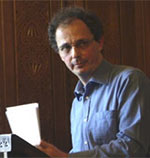First Congress:
New Temporal Regimes in Literature, History, and the Social Sciences
April 8 & 9, 2016
Reed College
Portland, Oregon
In a time in which apocalyptic discourses inform academic disciplines relating to art and culture, it is pertinent to interrogate the conceptions of temporality that lie at their core. As has been widely recognized, above all since the work of François Hartog, for several decades we have confronted an excessive "presentism" that poses new theoretical challenges for history, memory, experience, and commemoration. There is thus an urgent need within the social sciences, philosophy, and literature to define new temporal regimes that allow for an understanding of the present, eschewing both nostalgia for lost categories and the loss of historical experience and perspective. From these parameters, the conference aspires to offer a space to reflect on topics such as tradition and identity construction, testimonial literature, visual culture, discourses on memory, and translation. The larger goal is to formulate an aesthetic, social, and political criticism of time. We welcome papers and panels related to any aspect of this area of inquiry.
Beyond this overarching theme, also welcome are papers and panels on other topics of interest to our fields of study.
Keynote Speakers
 Julia Bryan-Wilson
Julia Bryan-Wilson
"Marking Time, Unmaking Memory"
Julia Bryan-Wilson is associate professor of modern and contemporary art at the University of California, Berkeley, where she teaches courses on recent art across the Americas. Her research interests include questions of artistic labor, feminism, queer theory, fabrication/production, performance, visual culture of the nuclear age, photography, and textile handicraft. She is the author of Art Workers: Radical Practice in the Vietnam War Era, UC Press, 2009, and editor of OCTOBER Files: Robert Morris, which was published in 2013 by the MIT Press.
 Ana María Ochoa
Ana María Ochoa
"The indigenous musical archive: between the time of myth and audiovisual time"
Professor at Columbia University. She is the author of Músicas locales en tiempos de globalización (Buenos Aires: Norma, 2003) and Aurality: Listening and Knowledge in Nineteenth-Century Colombia (Durham and London: Duke U. Press, 2014) among others. She has worked in Colombia, Mexico and the U.S. She currently researches genealogies of listening and their relation to the creation of different concepts of the acoustic in Latin America and the Caribbean. She has also worked on issues of music and cultural policy, intellectual property and musical circulation, and music and violence.
 Julio Premat
Julio Premat
"Repetición, originalidad, tradición: ¿cuál es el tiempo de la literatura actual?"
Julio Premat is Professor of Latin American literature at the University of Paris 8, France, and Director of the LIRICO research center on literatures of the Río de la Plata countries and its journal, Cuadernos LIRICO (www.lirico.revues.org). He is also Director of the Fondo Saer and was coordinator of the critical edition of Glosa and El entenado (Córdoba: Colección Archivos, Alción Editora, 2010). He has taught and lectured in several American and Latin American universities. His research has centered on the work of Juan José Saer, conceptions of authorship, and temporality in literary history. Books: La dicha de Saturno. Escritura y melancolía en la obra de Juan José Saer (Rosario: Beatriz Viterbo Editora, 2002), Héroes sin atributos. Figuras de autor en la literatura argentina (Buenos Aires: Fondo de Cultura Económica, 2009), Erase esta vez. Crisis del tiempo y comienzos literarios (forthcoming).